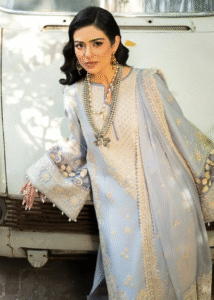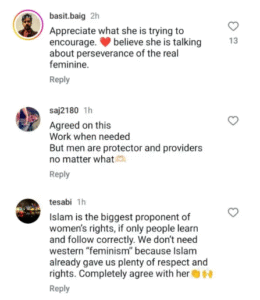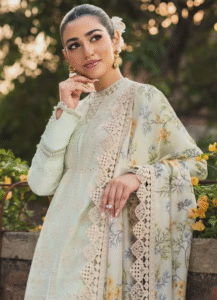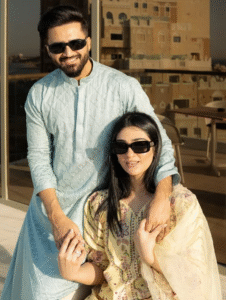Pakistani actress Sarah Khan has appeared in an interview session arranged by Independent Urdu during the span of which she decided to shed light on a few of her beliefs, some revolving around what she feels about feminism and how she likes to approach the particular subject in her day-to-day life.
Sarah Khan’s stance regarding the topic at hand has given rise to mixed feedback, some netizens have expressed intense approval of Sarah’s way of thinking while many have succumbed to insulting the star and telling her that she first and foremost needs to learn about what feminism actually implies.

Here is what the widely adored celebrity stated in the video circulating on the internet: “I am not too bent on being a feminist. I believe that men should stay on the pedestal designed for them so that women can live in peace. I do not want to go and pay the bills and certainly do not want to wait in queues. I am exactly like the old day traditional woman who chooses to sit at home and relax.”
Many social media users have made sure to mention that Sarah Khan’s opinion is completely illogical because feminism is standing up for those females whose rights are somehow being disregarded or neglected on the basis of being a woman while Sarah’s definition of feminism which revolves around not standing in queues and letting men be men is completely nonsensical.

On the other hand, quite a many netizens have applauded the lady’s narrative, because according to them this is exactly what our religion Islam teaches us, that men are the bread winner of the family and they have been specially brought into existence to enact the duties associated with them through a certain stature they stand on in their family.
Here is what the term ‘feminism’ implies according to Wikipedia: “Feminism is a range of socio-political movements and ideologies that aim to define and establish the political, economic, personal, and social equality of sexes. Feminism holds the position that modern societies are patriarchal—they prioritize the male point of view—and that women are treated unjustly in these societies. Efforts to change this include fighting against gender stereotypes and improving educational, professional, and interpersonal opportunities and outcomes for women.”









Leave a Reply